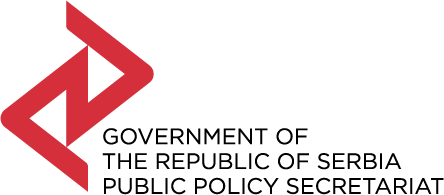A panel discussion titled “Analytical Service of LSG: A Compass for Strategic Decisions – From Data to Good Governance” was held on October 30, 2024, as part of the “Local Government for the 21st Century” project supported by the Government of the Swiss Confederation. The event was organized by the Public Policy Secretariat.
The discussion focused on stimulating dialogue within the professional community about the significance of data, evidence-based decision-making, and the potential for developing the analytical capacity of employees in public administration and local self-government. Special emphasis was placed on the Analytical Service for Local Self-Governments (LSG).
The panelists were: Melina Papageorgiou, Head of the Good Governance Division at the Swiss Cooperation Office, Bojana Tošić, Director of the Public Policy Secretariat, Jovan Knežević, Assistant Minister of the Ministry of Public Administration and Local Self-Government, Siniša Barjaktarević, Head of IT at the National Academy for Public Administration, Nikola Tarbuk, Secretary General of the Standing Conference of Towns and Municipalities, Branislav Mitrović, President of the Assembly of the City of Užice. The panel was moderated by Dijana Ilić Zogović, Assistant director of the Public Policy Secretariat.
The Analytical Services for LSG (https://rsjp.gov.rs/sr/analiticki-servis/ and https://rsjp.gov.rs/en/analytical-and-reporting-system/) are designed for searching and downloading data/indicators at the level of local self-government units based on provided parameters, in machine-readable format. They represent a tool for better strategic management and planning, as well as for creating public policies and legal regulations based on data. Additionally, they provide the possibility to compare local self-government units, improve budget preparation, and enable more efficient use of available resources.
In order to increase awareness about the importance of data usage for better decision-making, the following key challenges were highlighted in the upcoming period:
- Integration of data from different sources in one place, which allows for a more comprehensive view of the needs within a specific territory;
- Education and investment in the training of employees in data analysis, as only staff with strong analytical skills can fully utilize the potential that data offers;
- Collaboration between different levels of government and partner institutions, crucial for creating efficient systems that will support data-driven decision-making;
- Transparency and accountability, as making data available to the public increases citizen trust in public administration and local government.
The recording of the panel discussion is available on the Public Policy Secretariat’s YouTube channel at the following link.

